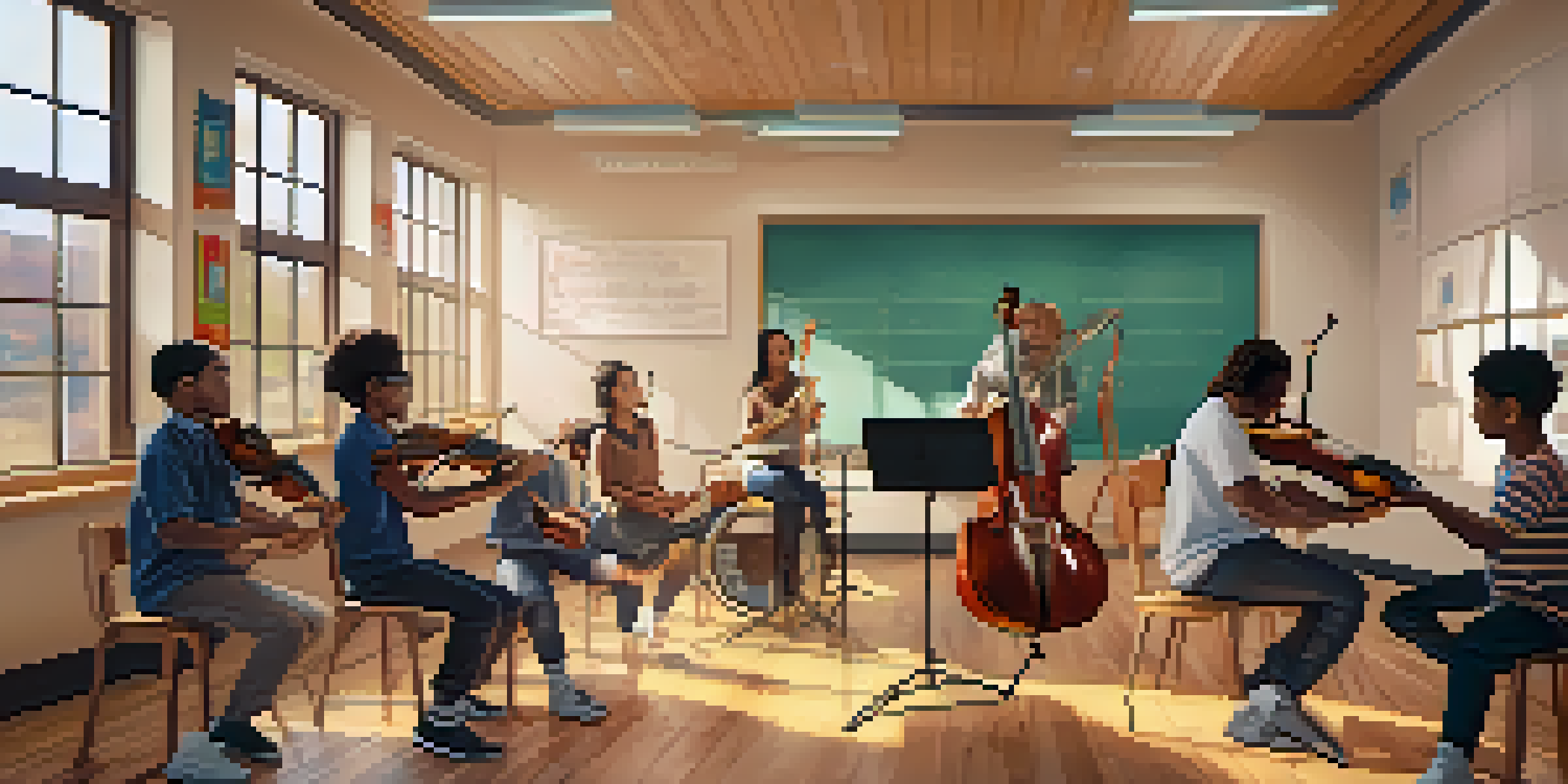Exploring AI Tools for Personalized Music Teaching Experiences

The Rise of AI in Music Education
Artificial Intelligence (AI) is revolutionizing various fields, and music education is no exception. The integration of AI tools allows educators to tailor lessons to individual student needs, enhancing learning outcomes. Teachers can now leverage technology to provide customized experiences that were once impossible in traditional settings.
Benefits of Personalized Music Teaching
Personalized teaching in music offers numerous advantages, such as improved engagement and motivation. When lessons are adapted to a student's specific interests and skill levels, they tend to feel more connected to the material. This tailored approach not only fosters a love for music but also accelerates the learning process.
AI Personalizes Music Education
AI tools allow for tailored music lessons that cater to individual student needs, enhancing their learning experience.
AI Tools for Assessment and Feedback
AI tools can assess a student's performance in real-time, providing immediate feedback that is crucial for improvement. For instance, apps can analyze pitch accuracy and rhythm, suggesting adjustments as needed. This instant response helps students learn more effectively, as they can correct mistakes on the spot.
Creating Custom Lesson Plans with AI
One of the most exciting features of AI in music education is its ability to create customized lesson plans. By analyzing a student's progress and preferences, AI can suggest specific exercises and materials tailored to their needs. This not only saves teachers time but also ensures that each student receives a unique learning pathway.
Real-Time Feedback for Students
AI can provide immediate performance assessments, helping students correct mistakes and improve their skills effectively.
Engaging Learning Experiences Through AI
AI tools can transform mundane practice sessions into engaging learning experiences. For example, gamification elements can be incorporated, making practice feel less like a chore and more like a fun challenge. This engagement is vital for maintaining student interest, especially for younger learners.
The Role of AI in Collaborative Learning
AI also enhances collaborative learning experiences between students. Through online platforms, students can connect with peers and teachers globally, sharing insights and learning together. This collaborative spirit fosters a sense of community and encourages students to grow collectively.
Collaborative Learning with AI
AI fosters a sense of community by enabling students to collaborate and share insights with peers and teachers globally.
Challenges and Considerations in Using AI
While AI tools offer exciting possibilities, there are also challenges to consider. Issues such as data privacy and the need for teacher training can pose obstacles to implementation. It's essential for educators to navigate these challenges carefully to maximize the benefits of AI in their teaching.
The Future of Music Teaching with AI
Looking ahead, the future of music education seems bright with the continued evolution of AI tools. As technology grows, so will the possibilities for personalized learning experiences. Embracing these advancements can lead to more effective teaching methods and a deeper appreciation for music among students.